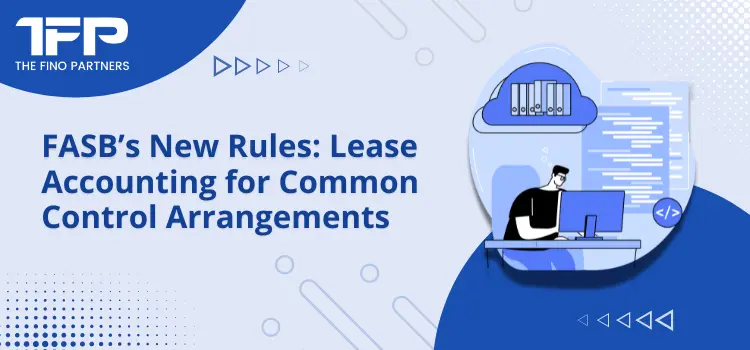In February 2023, FASB issued new rules regarding lease accounting under ASC 842. The emphasis of these rules is on how entities should account for the leases between entities under common control.
It aims to provide more clarity on lease accounting for common control arrangements and reduce the ambiguity that may have existed. Businesses affected by such new rules need to understand these kinds of changes to avoid compliance issues. In this blog, we will be breaking down the important parts of FASB's new rules and explaining what businesses should know and How they can ensure compliance. What Changes Can Be Expected in FASB's New Lease Accounting Standards?
Clarity for Common Control Arrangements
New standards under ASC 842 of FASB lease accounting give explicit messages with regard to common control lease arrangements. The term describes a type of lease between entities that are under common control, such as sister subsidiaries of the same parent company.
-
Accounting for Leasehold Improvements
Changes include the treatment of leasehold improvements. Whereas, under new standards, if leasehold improvements are added onto a property being leased, it is now possible to amortize those costs over the economic life of the improvements when such an economic life exceeds the lease term.
-
Retroactive Application
The new lease accounting standards permit retroactive application. This means previous leases apply and the organization can make adjustments that will provide comparability to financial statements.
-
Financial Statement Presentation
Leases between entities under common control should now be presented harmoniously with the presentation of other lease arrangements to ensure consistency in the financial disclosures.
Why Were These New Lease Accounting Standards Introduced?
-
Simplification
These changes were addressed by the FASB to simplify the complexity related to common control lease arrangements. Those rules were applied extremely inconsistently before these rules, as companies struggled to apply them.
-
Harmonizing Practices
By clarifying the accounting for common control arrangements, the FASB hopes to make the practice of lease accounting consistent across companies and, therefore, more transparent.
-
Leasehold Improvements
Another reason for change that introduced these new rules was the treatment of leasehold improvements, which up until then had always been left to interpretation by many businesses.
-
Increasing the Quality of Financial Reporting
The expected outcome of this development would be enhanced clarity and consistency in financial reports, thereby making the financial position of companies with common control lease arrangements more easily understandable by investors and regulators.
How Does ASC 842 Impact Lease Accounting for US Businesses?
-
Uniform Reporting
This means that under ASC 842, U.S. companies are now required to account for their leases, whether with related parties or not, according to a single standard that ensures transparency in various forms of lease transactions.
-
Impact on Key Financial Metrics
The transition to new lease accounting standards could have an impact on key financial metrics, including EBITDA and lease liabilities, and require changes in business financial statements.
-
Potential for Retrospective Adjustments
This is because the ability to retroactively apply changes can have significantly large adjustments to financial statements in the past years of a company and will most definitely alter how businesses report earnings and liabilities.
-
Leasehold Improvements
Those companies that have significant leasehold improvements in common control leases may find those assets changed on the balance sheet under the new rules.
What Should Businesses Do to Comply with FASB's New Lease Accounting Standards?
-
Review Existing Leases
Companies should review all their current leases, including those transactions between related parties, for compliance with the new guidance under ASC 842. Certain Leasehold Improvements Evaluation The organization should verify how leasehold improvements are currently recorded and make the requisite adjustments to ensure consistency with the new standards.
-
Adjust Financial Statements
Prior financial statements may be updated to reflect the new lease accounting standards. This would depend upon whether the changes are retrospectively applied.
-
Take Professional Help
The new regulations are a bit complex, and hence businesses need to get advice on the matter from a financial advisor or any other professional advisor in this regard to ensure that everything is done correctly.
Conclusion
The new lease accounting rules given by FASB under ASC 842 bring in clarity and uniformity, especially regarding common control lease arrangements. These standards have made things much clearer for businesses in respect of leasehold improvements and the simplification of accounting practices. Businesses should be properly informed about these changes and thus should be ready to put in place whatever processes are necessary to effect compliance. If properly done, this transition to new standards may well prove to be quite seamless, with ongoing transparency and consistency in financial reporting.
Fino Partners offers comprehensive financial services to help companies comply with emerging standards like ASC 842 lease accounting. From financial statement restatement to consultation on lease arrangements with expert advice, Fino Partners has the right team to keep your business compliant and operational in full swing.
Read Also FASB Update: Simplified Income Tax Accounting for U.S. Businesses



























